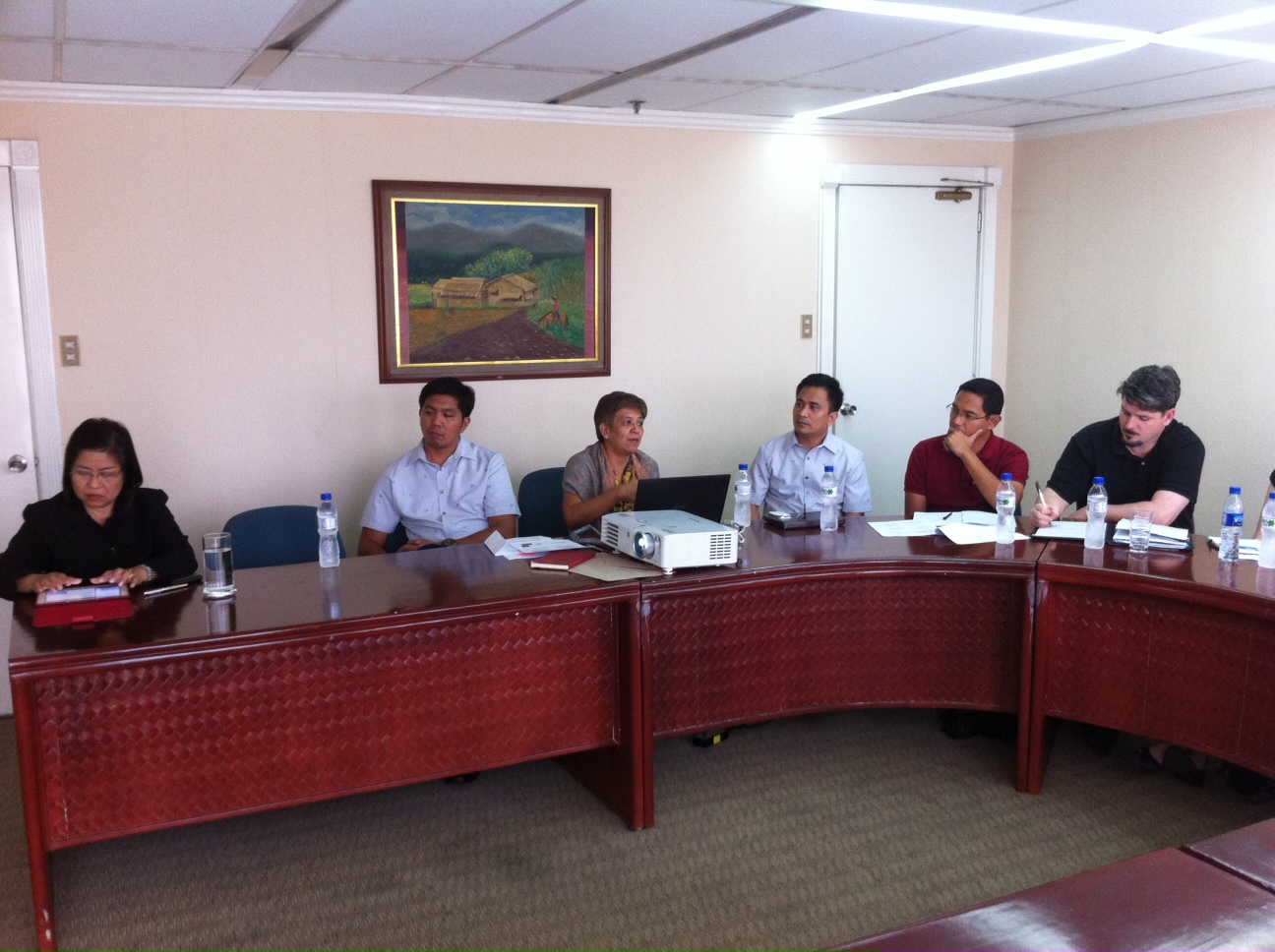Still recovering from jetlag, most of Team Philippines awoke in the wee hours of the morning and either stared at the ceiling for a few hours, sat down for a lengthy breakfast, or got in a workout. At 8am we split into two groups: one group, with Professor Alford (professor of law) and Mauri Miller (law student) went to meet with CRS’ lawyer to inquire about the legal situation for cooperatives in the Philippines. We learned that contracts are quite enforceable through legal mechanisms in the Philippines. Many institutional buyers that reach out to small farmers, such as Nestle and Jollibee (a national burger joint), enter into contracts with the suppliers of their goods, even if they are small cooperatives. This requires that cooperatives themselves are recognized legal entities, as opposed to an informal, legally-unrecognized group of farmers.
While Team A (Professor Alford, Mauri, Robbie, Krissy) met with the CRS lawyer, Team B (Dana, Sam, Mike) met with a branch of the Department of Agriculture called the Bureau of Agrarian Reform Beneficiary Development. This governmental bureau aims to provide services to the beneficiaries of land reform: those who have received land titles or are leasing new lands as a result of government (re)distribution of land. The bureau is involved in various projects, the most exciting of which for the team was a de-centralized model of microfinancing for small farmers and cooperatives which has successfully overcome many of the barriers that inhibits lending to small farmers.
Team A and Team B joined forces again in the afternoon, creating Team Awesome (aka Team Philippines), and we met with the National Livelihood Development Council (NLDC). NLDC is a government-owned social lending corporation that provides funding to rurally-based microfinance institutions and specifically aims to provide services to the beneficiaries of agrarian reform.
After a full day of meetings, we killed some time at the Mall of Asia, a huge, huge mall, where we bought local SIM cards, played (super cheap!) arcades, and dreamed of getting massages. Team A then headed back to our home base in Manila, and Team B boarded a flight for Davao City. Team A will spend the rest of the week meeting with CRS’ NGO partners, cooperatives, government entities, and financing institutions in the northern island of Luzon. Team B will meet with a similar group of stakeholders in Mindanao, the southernmost island in the Philippines.
